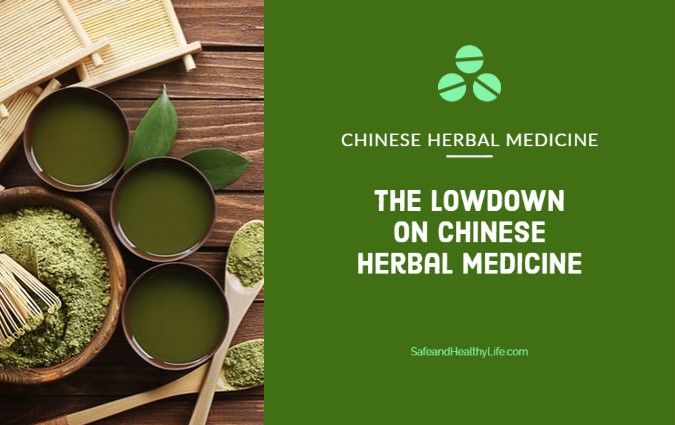
For reasons ranging from ineffective treatment of symptoms to harsh side effects, for many people, conventional Western medicine just doesn’t cut it. Then they’re left seeking out alternative medicines.
After extensive research and consulting with health practitioners, most of those people end up convinced that Chinese herbal medicine is their best shot at taking control of their health.
But does this ancient practice have enough to alleviate the ailments that we face in this modern world?
Let’s find out.
What is Chinese Herbal Medicine?
Chinese herbal medicine is part of the traditional Chinese medicine family along with acupuncture, cupping therapy, gua sha, massage, and tai chi. These all aim to restore balance to the body and mind.
As the name implies, this form of traditional medicine originated in China some 3,500 years ago. The underlying principle of Chinese herbal medicine is simple: to restore and retain energy, known as Qi, that runs through the human body in invisible channels.
What is Chinese Herbal Medicine Used For?
Perhaps one of the reasons why Chinese herbal medicine is fast becoming adopted as a medicinal norm in the Western world is because it can help with so many different ailments. Some of its common uses include the treatment of:
- Sleep disorders: Chinese herbal medicine is commonly used to help people suffering from sleep apnea, insomnia, restless leg syndrome and even snoring. More often than not Chinese herbal medicine is administered as a tea for this purpose.
- Sports hernias: Due to its regenerative properties, Chinese herbal medicine is often used to treat sports hernias. Most often this is in a topical format that is massaged into the affected area.
- Hair loss: Chinese herbal medicine is often used to treat hair loss and premature baldness in both men & women by restoring kidney function, balancing hormones & bringing balance to the scalp. It is commonly used for this purpose in an extract.
- Chemotherapy side effects: Chemotherapy has numerous side effects that can make the life of the patient very difficult. The anti-inflammatory properties and promotion of cell growth that Chinese herbal medicine possesses mean it’s often used to alleviate these side effects.
Those are just some of the uses of Chinese herbal medicine. The full list is long and varied. While it is often used as a standalone treatment, it is also used in conjunction with other elements of Chinese traditional medicine such as acupuncture.
What is Chinese Herbal Medicine?
Chinese herbal medicines are almost always plant-based only, but in specific cases, mineral and animal-based products find their way into the specially crafted formula.
A few of the herbs commonly found in Chinese herbal medicine formulas include:
- Yu Xing Cao
- Gingko Biloba
- Ginseng
- Ginger
- Cinnamon
- Astragalus
- Da Huang
- Red yeast rice
- Gotu kola
- Goji berry
- Linh chi
- Monkshood root
- Chrysanthemum flowers
- Thunder god vine
- Willow bark
How is Chinese Herbal Medicine Administered?
The taste of natural herbs isn’t appealing to everyone so to make consuming and digesting Chinese herbal medicine as easy as possible it most often comes in a capsule format.
But if you have a problem swallowing capsules, or don’t mind the taste of herbs, there are other formats you can try:
- Teas
- Powders
- Liquid extracts
- Pills
- Creams
- Pastes
As you can see, you can take Chinese herbal medicine in whichever format you’d prefer. If you’re prescribed a specific format that you know you’ll have trouble taking, be sure to communicate this to your Chinese herbalist.
Before You Dive In
After reading all about how Chinese herbal medicine can bring balance to your life, we bet you can’t wait to enjoy the benefits for yourself. But before trying this alternative medicine out for yourself there are a few things you need to do:
- Get your doctor or physician’s go-ahead
- Get hold of your medical records
- Make a list of all medications you’re currently taking
What to Expect when visiting a Chinese Herbalist
Know that paying a visit to a Chinese herbalist is not like attending an appointment with a conventional doctor. A Chinese herbalist will typically perform assessments on your tongue and pulse as well as to conduct a general physical exam.
The above assessments and exams are conducted to determine if you have any Qi blockages or imbalances in the body. Once you’ve been assessed, you’ll be prescribed a specialized Chinese herbal formula that could contain up to 20 different types of herbs.
Final Thoughts
While studies are yet to confirm the scientific effectiveness of Chinese herbal medicine, that shouldn’t stop you from trying it out for yourself and experiencing the benefits first-hand. One in five Americans and almost three million Australians already do!
Do you believe in the restorative and healing power of Chinese herbal medicine? Let us know in the comments section below. We’d love to hear your thoughts on this.
About The Author:
Shannon Gibson’s inspiration for Blue Wren Acupuncture developed after her own experience with health and fertility issues. From her very first experience with acupuncture, a passion quickly developed about supporting people to achieve their own personal goals and find happiness using Chinese medicine. With her gentle, compassionate and caring approach, she provides individualized treatments to suit patients with a wide variety of health concerns.


